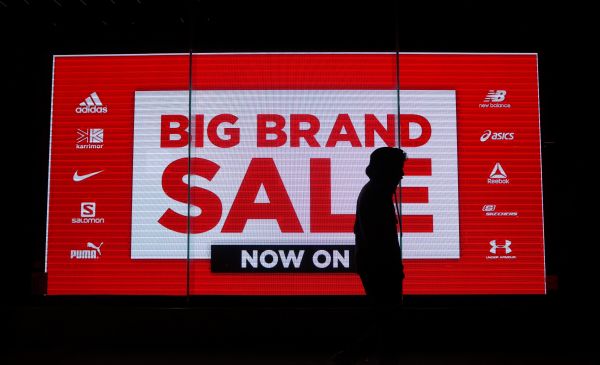We are happy to answer marketing questions of all types here on Branding Strategy Insider. Today, Sanaya, a Reporter in Dubai, United Arab Emirates asks this question about brand extensions.
Hi Derrick, I would appreciate your input for an article that I’m working on for a Gulf News publication (largest English daily in the Middle East). The fashion and lifestyle article takes a look at how noted fashion designers, such as Giorgio Armani, Tom Ford, Chanel, and most recently Burberry have extended their brands by launching their own cosmetic, skincare and beauty lines.
It would be great if you could share your expertise and help by answering the questions below.
- What are the primary drivers that propel fashion houses to move from apparel to cosmetics?
The same thing that drives most companies to extend their brands from their core categories to additional categories – the potential for additional revenues. Whether they achieve this via new product development or brand licensing, this is a way to leverage the brand for increased revenues. Cosmetics and apparel are highly related under the broader umbrella of “fashion,” so the brand extension is more likely to succeed as long as the apparel and cosmetics are positioned similarly. - How does stretching a brand affect its DNA?
The trick with brand extension is to make sure the brand’s associations and the associations within the new product category are not in conflict. Better yet, those associations should complement and reinforce one another. The brand extensions with the highest failure rates are those that attempt to stretch a premium or luxury brand down into a value segment. - What value-additions do such brand extensions bring to the brand itself?
Sometimes the brand extension is just another proof point for the brand promise, strengthening what the brand stands for. At other times, it makes the brand more relevant to new customer segments. Sometimes it can stretch the meaning of the brand beyond a particular product category, giving it a prolonged lifespan and greater flexibility for future growth. - Why do we (the public) accept these brand extensions so easily – thus contributing to their success?
The public doesn’t always accept brand extensions. The market is littered with brand extension failures. For instance, Levis tailored classic suits were not well received, nor was Bic perfume or Hooters Air. The public only accepts brand extensions if they make sense to them given their perceptions of the brand and what it stands for. For instance, Hallmark could easily extend its greeting card business into giftable candy and flowers because Hallmark stands for “caring shared” – that is, helping people make a genuine difference in the lives of others.
Happy to help Sanaya. Have a question related to branding? Just Ask The Blake Project
The Blake Project Can Help: The Brand Licensing Workshop
Branding Strategy Insider is a service of The Blake Project: A strategic brand consultancy specializing in Brand Research, Brand Strategy, Brand Licensing and Brand Education





4 comments
Paulalexgray
February 1, 2011 at 5:42 am
Great points on the challenges of extending a brand across to a distant product or service type.
I’d say however that a more critical point is the underlying capabilities of the business – does it have the experience and capabilities to build and maintain the new product? Does it have the relationships with the value chain and distribution networks? Is it aware of the different cost models and finance structures.
I’d say that Hooters Air failed not because the brand was too far away from their original offering – (hey, I’m sure plenty of dudes would have loved to fly on it!). It failed because people that run restaurants have little idea about the political, operational, legislative and practical aspects of running an airline.
Jason Lim
February 3, 2011 at 5:15 am
@Paulalexgray:
I’d actually counter that the know-how is indeed secondary to an extension’s success compared to how much it makes sense. I’m sure Bic didn’t produce their perfume in-house; it was most likely done by someone with experience in fragrances, but it still failed.
In the case of Hooters Air, I’m sure a lot of guys did fly with them, but certainly not enough to let it succeed. While they may have all the know-how required, they are not PERCEIVED as such, and that is enough reason for their failure.
Pankajkumar1985
February 17, 2011 at 3:51 pm
Don’t you think its easier to do a Brand Extension in services than in products?
One possible reason being Product brands have stronger Brand personalities than say a Service brand. Please shed some more light onto this issue.
Also I would like to know, What could be the motive behind a Luxury Car brand like Ferrari launching their range of perfumes & deodorants, surely not an attempt to Leverage their Brand Value, I Guess.
Pankaj Kumar
A Student of Brand Management
Chuck Lytle
March 28, 2011 at 3:41 pm
Brand extension for companies can either be very beneficial or extremely detrimental. I agree with the article because a brand can not expand into a different product market if it doesn’t relate to the perception of their original brand. The product has to be somewhat similar or connected in a way that makes sense. Hooters Air or Bic perfume didn’t work because they tried to expand into markets that didn’t reflect their original brand perception. Those products may have had a good reputation in different markets but in those new markets, they were perceived as having less value.
The brand expansion crossed that line of possible products it could market into, products already deemed unfit because of their other brand reputation. Their brand delivers a promise in the market they excel at. That promise doesn’t correlate to these products they tried to bring on the market. In total, the new product must represent their original brand and continue to speak that promise. Straying too far from your brand is a path destined for failure.
Comments are closed.